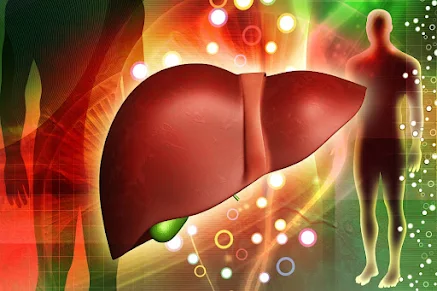Ensuring A Healthy Liver
Supporting liver health and ensuring it functions optimally are crucial for overall well-being. The liver is the body’s main detoxification organ, processing toxins, metabolizing nutrients, and regulating essential bodily functions. Here's how to maintain and enhance liver health naturally:
1. Prioritize a Liver-Friendly Diet
Fruits and Vegetables
- Citrus Fruits: Lemons and limes stimulate bile production, aiding detoxification.
- Beets: Rich in antioxidants like betalains, they help reduce oxidative stress and inflammation in the liver.
- Cruciferous Vegetables: Broccoli, cauliflower, and Brussels sprouts boost detoxification enzymes.
- Leafy Greens: Spinach and kale are rich in chlorophyll, which helps cleanse the liver.
Healthy Fats
- Avocados: Contain glutathione precursors that help neutralize toxins.
- Nuts: Almonds and walnuts support liver function with their omega-3 content.
Whole Grains
- Brown Rice and Oats: Support liver metabolism by providing B vitamins.
Herbs and Spices
- Turmeric: Contains curcumin, which reduces liver inflammation and promotes cell repair.
- Ginger: Improves digestion and supports bile production.
- Garlic: Activates liver enzymes that flush out toxins.
2. Stay Hydrated
- Adequate hydration supports the liver in flushing out toxins.
- Lemon Water: A daily glass of warm lemon water can stimulate liver function.
3. Use Liver-Supporting Herbal Remedies
- Milk Thistle: Contains silymarin, which protects and regenerates liver cells.
- Dandelion Root: Stimulates bile flow and supports liver detoxification.
- Artichoke Extract: Improves bile production and protects liver cells.
- Licorice Root: Helps reduce liver inflammation.
4. Avoid Liver Stressors
- Limit Alcohol: Excess alcohol can lead to fatty liver disease and liver damage.
- Avoid Toxins: Minimize exposure to pesticides, industrial chemicals, and synthetic fragrances.
- Cut Processed Foods: Eliminate trans fats, high-fructose corn syrup, and artificial additives.
5. Maintain a Healthy Weight
Excess fat around the liver (fatty liver disease) can impair its function.
- Eat a balanced diet with controlled calorie intake.
- Incorporate regular physical activity.
6. Support Detox Pathways
- Fiber-Rich Foods: Flaxseeds, chia seeds, and psyllium husk help bind toxins in the gut.
- Antioxidants: Foods rich in vitamin E (almonds) and vitamin C (berries) protect the liver from oxidative stress.
7. Take Liver-Supporting Supplements
- Glutathione: A potent antioxidant that supports detoxification.
- N-Acetyl Cysteine (NAC): Boosts glutathione levels in the liver.
- Alpha-Lipoic Acid (ALA): Helps regenerate liver tissue and reduce inflammation.
8. Promote Healthy Bile Flow
- Bitter Foods: Arugula, dandelion greens, and chicory stimulate bile production, aiding fat digestion and liver function.
9. Stay Active
- Regular exercise reduces liver fat and inflammation while improving overall liver function.
10. Manage Stress
- Chronic stress can negatively impact liver function. Engage in stress-relieving practices like meditation, yoga, or deep breathing exercises.
11. Get Regular Liver Function Tests
- Periodic checkups help detect early signs of liver dysfunction.
12. Avoid Overmedication
- Reduce NSAIDs: Frequent use of painkillers like ibuprofen can harm the liver.
- Limit Acetaminophen (Paracetamol): Overuse can lead to liver toxicity.
13. Detox Safely
- Avoid extreme detox programs; focus on gradual and sustainable lifestyle changes.
By incorporating these practices, you can help keep your liver healthy and functioning at its best. If you have pre-existing liver conditions, consult a healthcare provider for tailored guidance.


No comments:
Post a Comment